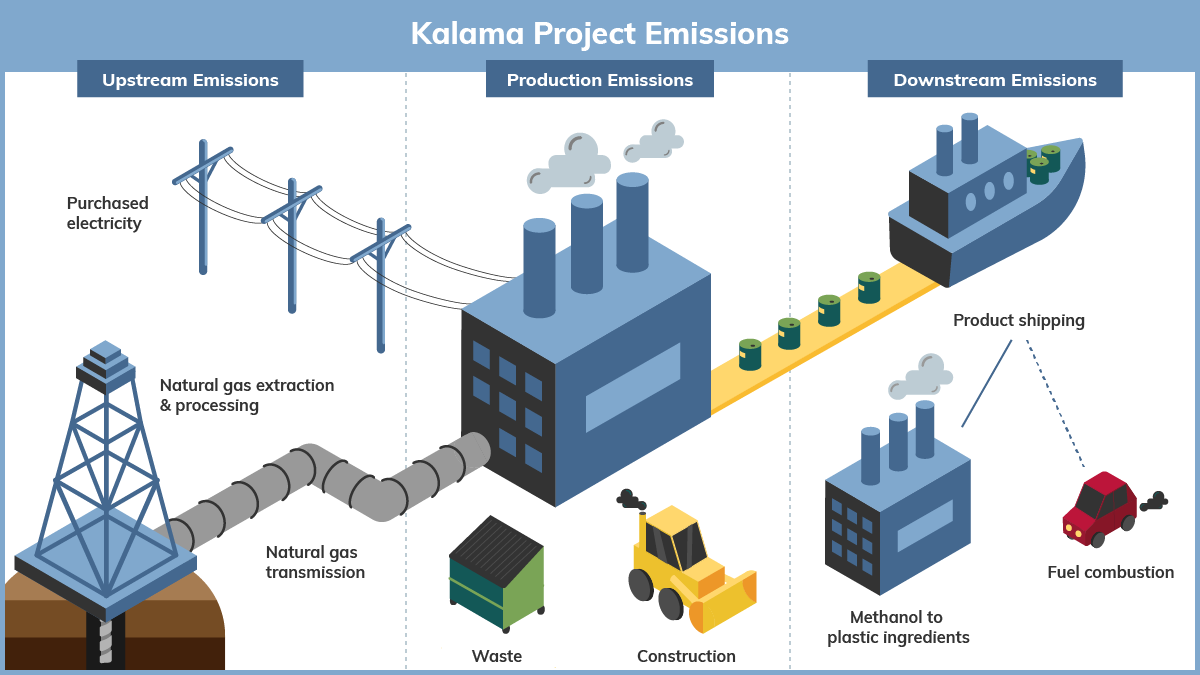Today, the Washington Department of Ecology released its final lifecycle analysis of the likely greenhouse gas emissions from a proposed methanol manufacturing facility in Kalama, concluding that the project would increase greenhouse gas emissions in Washington state.
With the Second Supplemental Environmental Impact Statement (SSEIS) complete, Ecology is required to make a decision on a Shoreline Conditional Use Permit for the project within 30 days.
After Ecology released its draft report Sept. 2, the agency held four public hearings and received 4,700 public comments. Based on feedback, Ecology made several revisions to the SSEIS:
- Ecology determined that the estimated upstream natural gas leak rate (from extracting, processing, and transporting natural gas to Kalama) should be increased to reflect the best available science.
- Ecology determined that out-of-state emissions associated with extracting, processing, and transporting natural gas to Kalama and shipping methanol to China contribute to the project’s significant impacts.
Ecology began a fresh review after determining a previous analysis conducted by Cowlitz County and the Port of Kalama did not fully address the greenhouse gas emissions from the facility. Ecology also determined that the previous analysis was insufficient for evaluating mitigation measures proposed by Northwest Innovation Works, the project’s sponsor.
Greenhouse gas analysis
Ecology contracted with TRC, a consulting firm experienced in complex environmental and economic analyses, to independently review how the additional methanol produced in Kalama could impact global markets for methanol. The analysis also looked at:
- impacts from upstream emissions, like the greenhouse gases that escape from natural gas wells and pipelines that supply natural gas for the project,
- emissions produced by the facility,
- downstream emissions from transporting the methanol to its intended destination in China,
- and how the product will ultimately be used.
Key findings
- The project would increase greenhouse gas emissions within Washington state by almost one million metric tons of carbon dioxide a year. The Kalama facility would be one of the 10 largest sources of greenhouse gas emissions in the state. Northwest Innovation Works has said that it will mitigate all of the facility’s in-state emissions.
- The consultants predicted that worldwide demand for methanol is likely to increase in the decades ahead, which could lead to higher greenhouse gas emissions with or without the Kalama facility.
- Increased methanol supply would lead to methanol being burned as a fuel. Northwest Innovation Works has said all of the methanol from the Kalama facility will be used in plastics production, but increasing methanol supply makes it more likely that more methanol will be used as fuel, regardless of the producer.
- Extracting, processing, and transporting the natural gas used to make the methanol would likely produce higher emissions than previous estimates.
- Global greenhouse gas emissions would increase with the addition of the Kalama facility, but potentially less than if the worldwide demand for methanol increases and the demand for methanol is met by other producers.
Next steps
Ecology now has 30 calendar days to approve, approve with conditions, or deny a Shoreline Conditional Use Permit. Several other federal, state and local permits are required for the proposed methanol project to move forward. In November 2020, a federal court vacated two federal permits approved by the U.S. Army Corps of Engineers on the basis of insufficient greenhouse gas analysis and other environmental impacts.
Read the report


